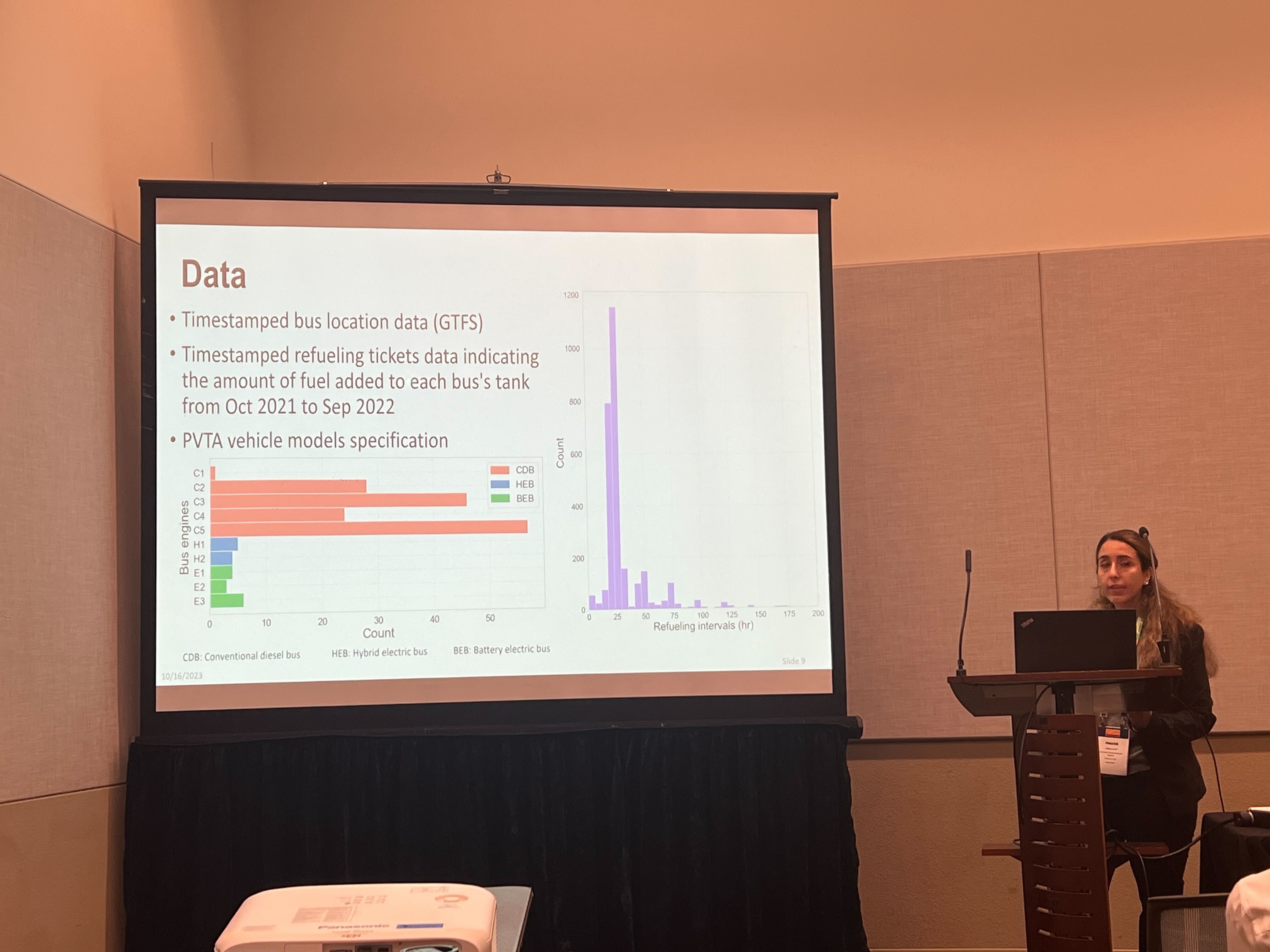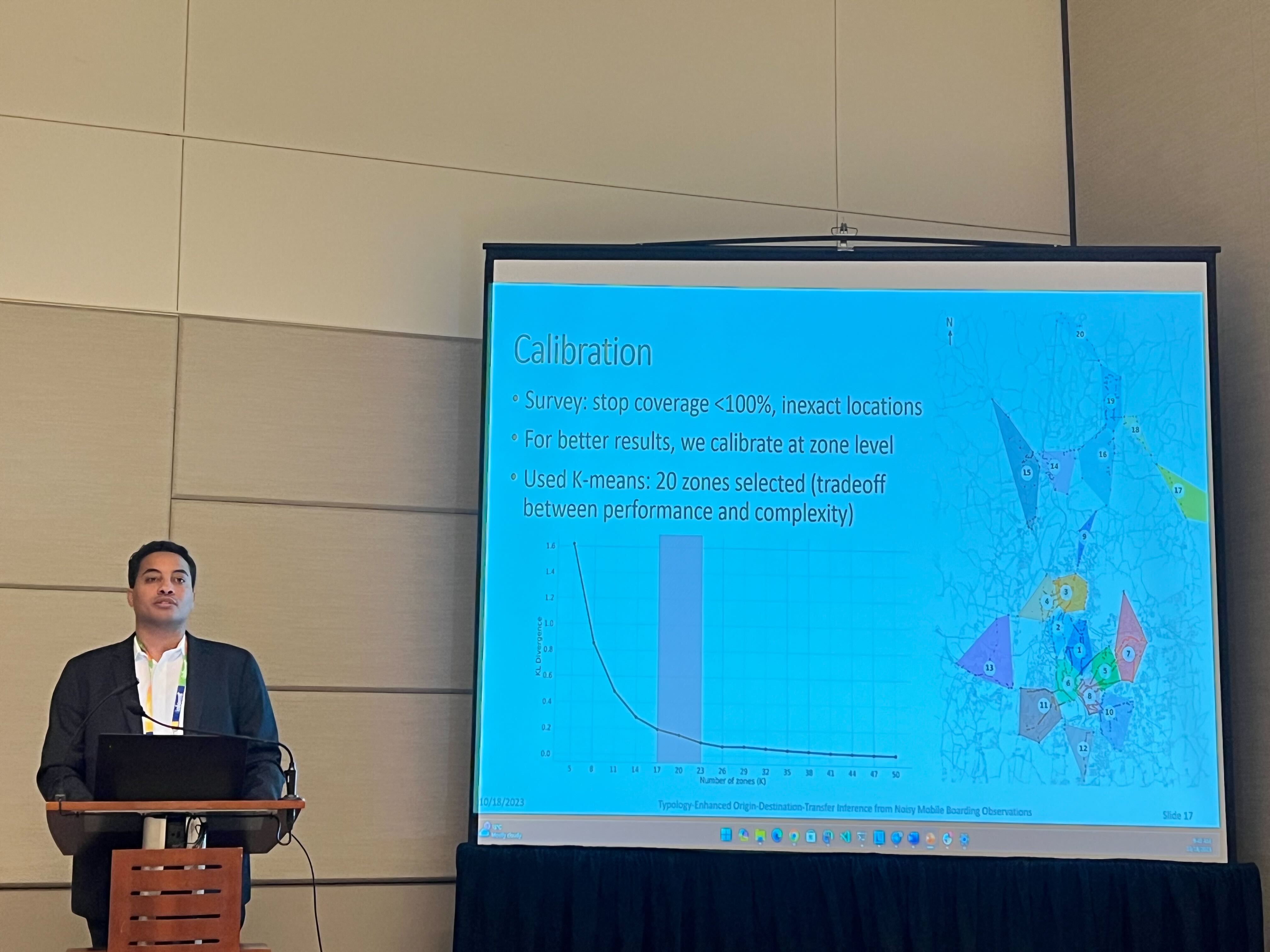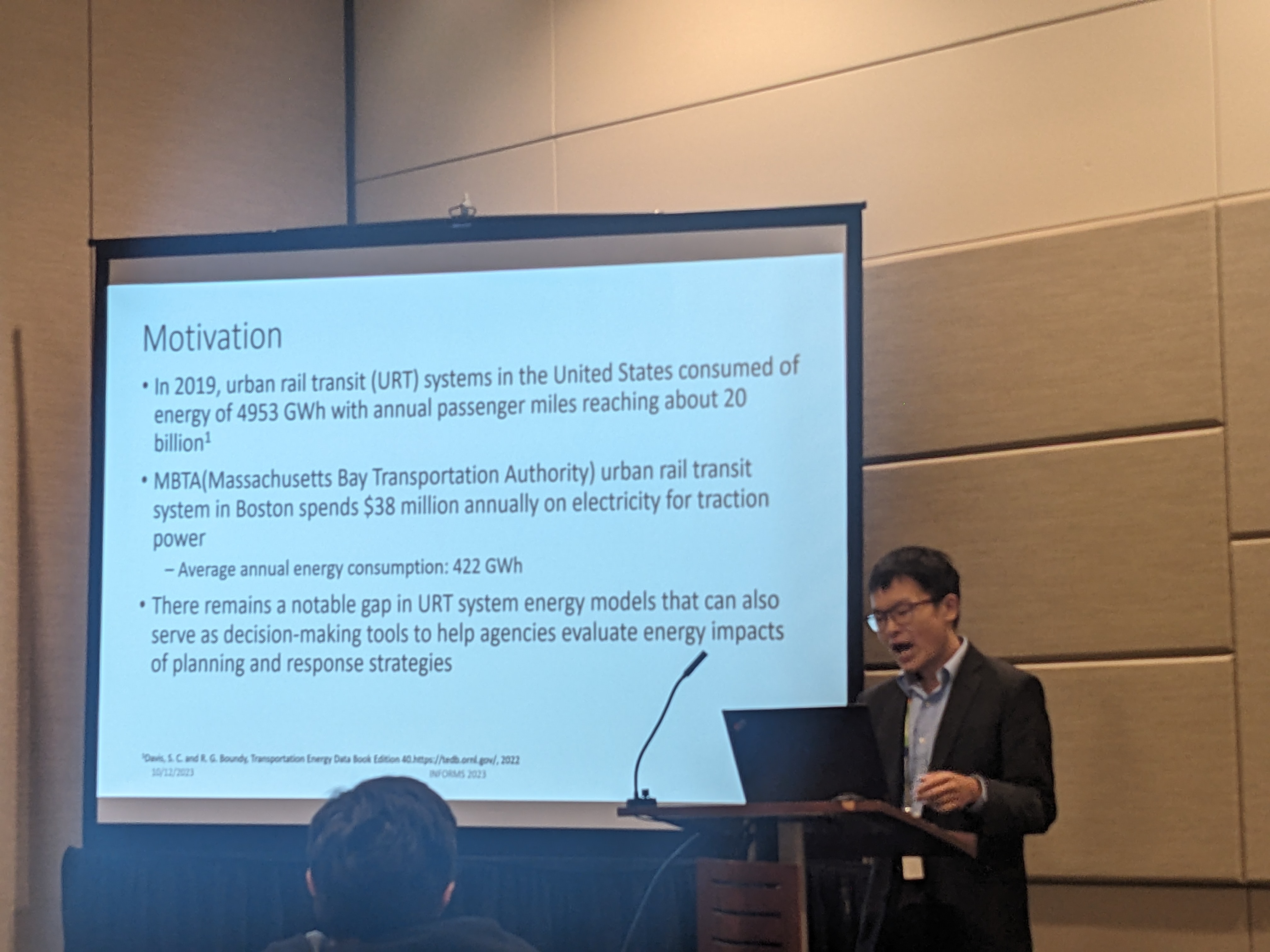The project report can be found here
Tne entire lab was represented at the INFORMS Annual Meeting in Phoenix this year. Jimi chaired a session (Data Mining and Machine Learning for Sustainable Transportation) and also gave a talk there on his work on road network typology analysis of MSAs. Mahsa presented her work on energy modeling and electrification strategy for bus transit systems. Mohammed gave on talk on spatiotemporal bus passenger types. Zhuo presented his work on energy forecasting and decision-making for urban rail transit systems.





TRB 2022 was held in person this year, in spite of the Omicron spike. Our five current members attended: Jimi, Mahsa, Mohammed, Nasko and Zhuo. Mohammed presented a poster on our PVTA-ODX work titled, “Trip pattern typologies in the Pioneer Valley Bus Transit System,” while Zhuo presented our work on the TREEM project a the poster titled, “Modeling system-wide urban rail transit energy consumption: A case study of Boston.”


You’ll find this post in your _posts directory. Go ahead and edit it and re-build the site to see your changes. You can rebuild the site in many different ways, but the most common way is to run jekyll serve, which launches a web server and auto-regenerates your site when a file is updated.
Jekyll requires blog post files to be named according to the following format:
YEAR-MONTH-DAY-title.MARKUP
Where YEAR is a four-digit number, MONTH and DAY are both two-digit numbers, and MARKUP is the file extension representing the format used in the file. After that, include the necessary front matter. Take a look at the source for this post to get an idea about how it works.
Jekyll also offers powerful support for code snippets:
def print_hi(name)
puts "Hi, #{name}"
end
print_hi('Tom')
#=> prints 'Hi, Tom' to STDOUT.Check out the Jekyll docs for more info on how to get the most out of Jekyll. File all bugs/feature requests at Jekyll’s GitHub repo. If you have questions, you can ask them on Jekyll Talk.
